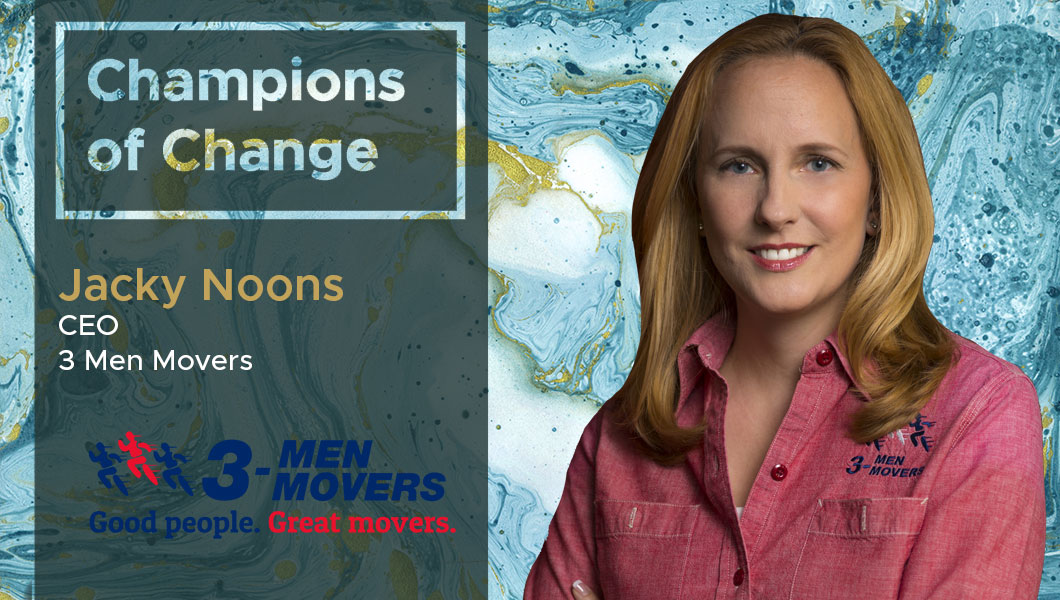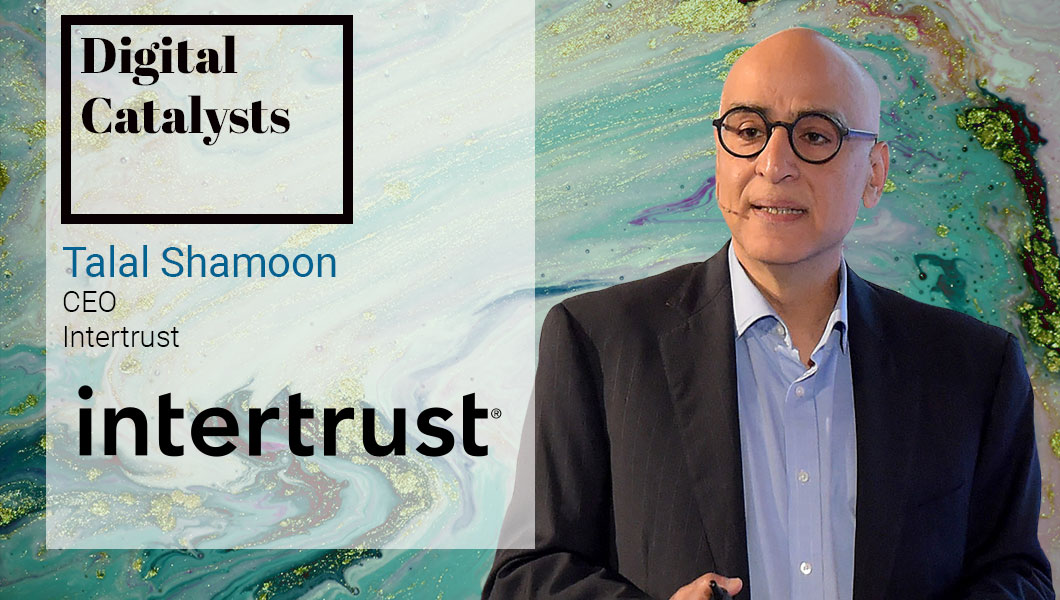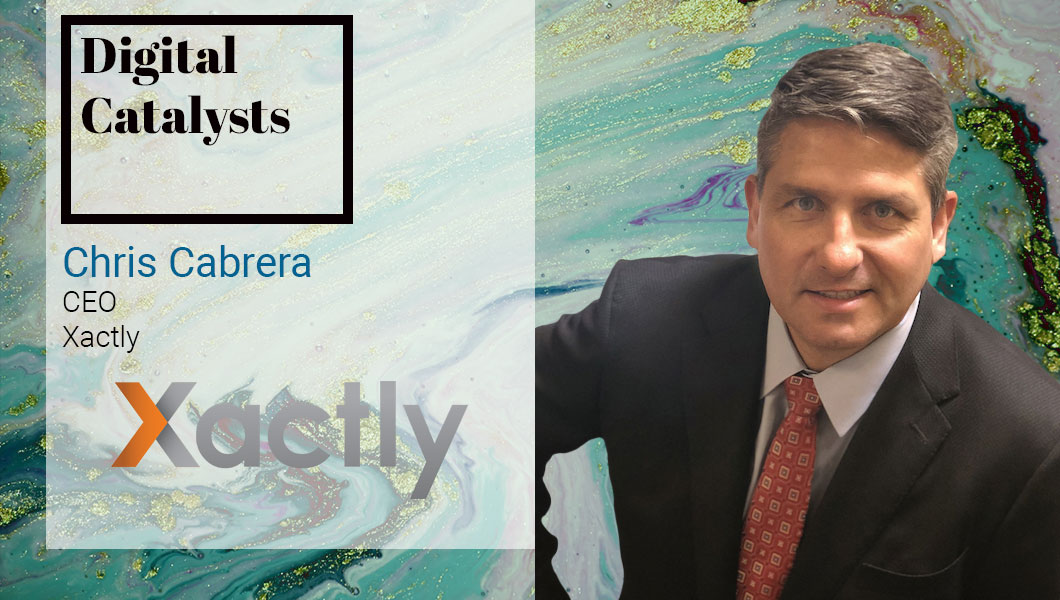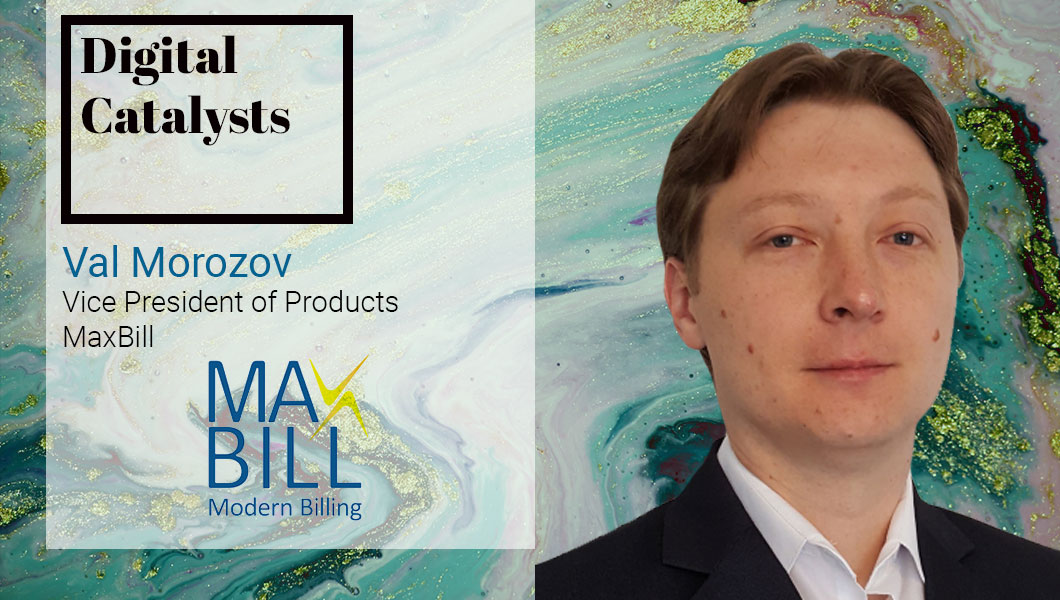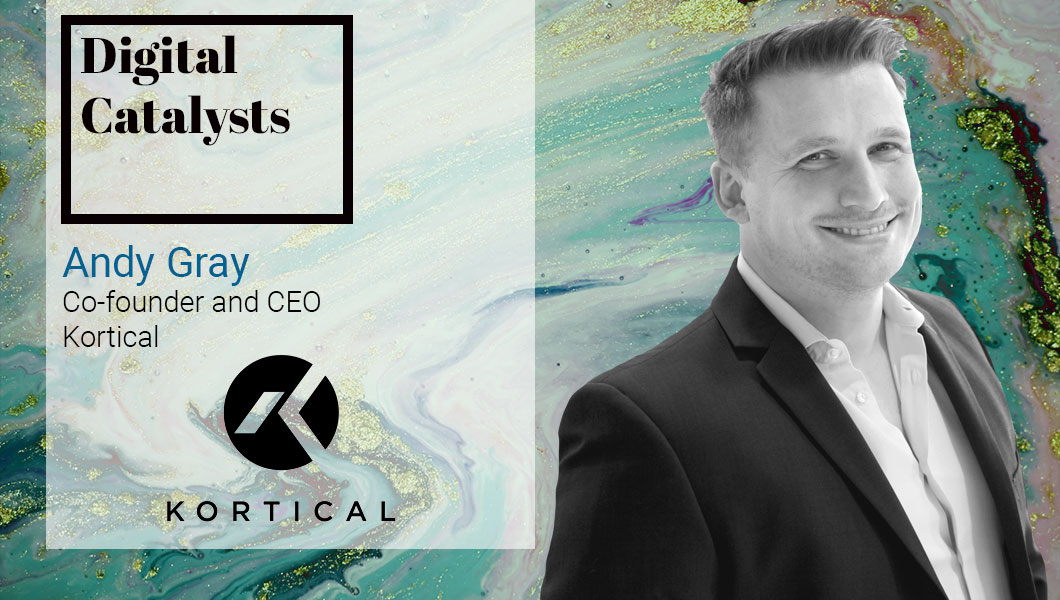Interview with Harrie Vollaard, Head of FinTech Ventures & Innovation at Rabobank
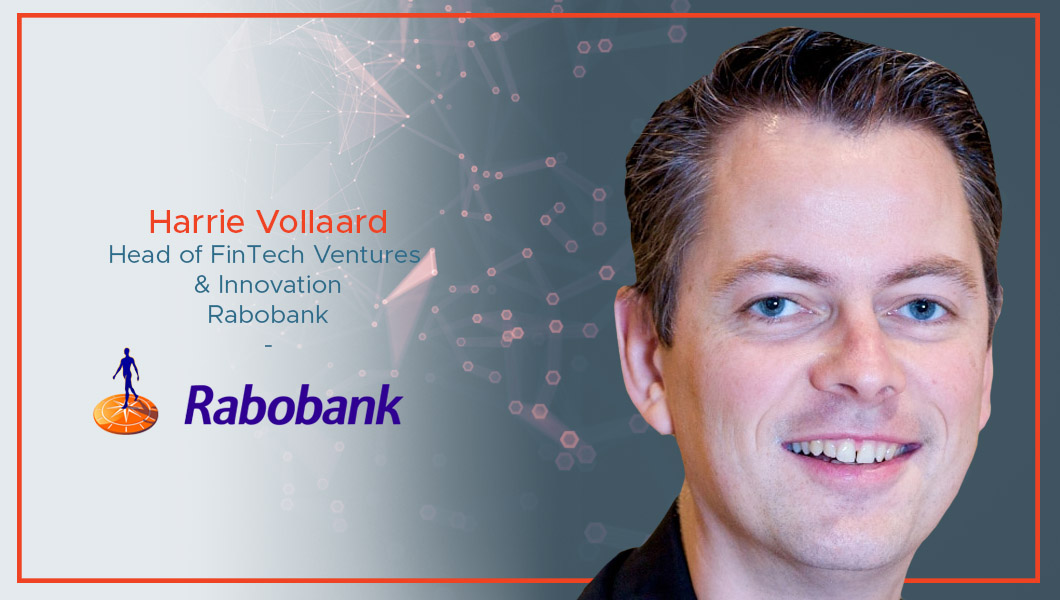
Harrie Vollaard, Head of FinTech Ventures & Innovation at Rabobank, has established several partnerships with start-ups, manages the fintech investments for the Rabobank, is involved in fintech accelerator programmes around the globe, and created several spin-offs. In this interview during FinovateEurope 2018, he chats about Rabobank’s digital transformation, how the bank works with startups and accelerators and, his key tips for banks who strive to create a successful digital agenda
Tell us about Rabobank’s digital transformation program.
Our digital transformation is focused on three areas: improvement of our regular lines of business, expanding into new markets or launching new services to keep in pace with changing needs of our customers and leveraging our current assets to create something completely new.
Can you give an example of how you might leverage the bank’s current assets to do something completely new?
Trust is an asset of the bank and we can use that trust to create new services such as digital identity. With the introduction of the new service ebusiness, we are doing exactly that together with Signicat, one of the startups we are working with. The point is to use our assets to find new revenue streams for the bank. Another example is we have introduced the platform Rabo & Co, which is more or less a marketplace lending platform that looks at different money sources to fulfill a client’s financing need. The loans come from SMEs, and we matched these with e.g. high net worth customers of the bank.
We are changing our business model to keep up with the changing needs of our customers. In the past financial services were product-driven, but today financial products are a commodity, they can be exchanged with those of another bank, so we need to find a new way to differentiate ourselves from the others. That is why we have launched Tellow, a mobile-only app that helps freelancers keep track of receipts, tax information and invoices. It is a subscription-based service that provides a service that addresses our clients’ needs and brings in a new revenue stream. The idea came out of our internal venture building program.
What about buy-in from top management? How crucial is that to the integration of startups?
We now have a digital transformation officer on the board of Rabobank and that is extremely helpful and a necessity to be successful.
What do banks need to focus on when building a digital agenda?
There are three key areas that banks need to address to build their digital agenda:
- A clear innovation thesis and establishing the areas you want to focus on. Here are four areas that we have defined – financial cruise control, platform banking, emerging technologies as business model enablers, and data for food.
- Open infrastructure to collaborate. To facilitate in- and out-coming datastreams as well as delivering services to third parties and incorporating external services. I envision a satellite structure of the bank’s core assets surrounded by an ecosystem of third parties and startups where the bank is still the first point of contact.
- A company-wide digital DNA. This is the key success factor and enabler of innovation. Innovation departments running innovation projects and proof of concepts are essential, but in order to be successful you need scale. Scale can only be accomplished through the business lines and marketing department. The bank needs to look beyond the existing products and that can only be accomplished via a customer-first approach, which means a full adoption of a lean startup methodology and product development processes that facilitate iterative learning. A more Darwinian approach is also preferable; it is not the best executed project but the most adaptable organization who survives.
Banks need to ask themselves whether they are flexible and sensitive enough to adapt to the rapidly changing context.
Many large corporates now join accelerators, with mixed results. Which accelerator programs have you joined and how does Rabobank benefit from these programs?
We are members of Startupbootcamp FinTech in Amsterdam, New York City and London, the Rockstart accelerator here in the Netherlands and with RocketSpace in San Francisco. We join accelerators to get access to the fintech ecosystem and also to get an understanding of developments, trends, new business models and new revenue streams.
For each accelerator program we have connected with at least two of the startups to run a proof of concept. But this is not the only benefit. What we noticed that other partners of the accelerator programs are large retailers that are also clients of the bank. We discovered that our large corporate clients are also struggling with innovation so we saw an opportunity to use our experience to play a matchmaking role and present what we are seeing in startup innovation to our large corporate clients. This is what we are doing with RocketSpace in San Francisco. We have partnered with RocketSpace and launched the Food & Agri accelerator program Terra to help our large corporate clients out with innovation and establish proof of concepts with startups.
How does Rabobank integrate startups?
We have entrepreneurs in residence in place. These are Rabobank employees that serve as innovation ambassadors and work with startups. They help startups to bridge cultural differences and also to learn the language of the business side. We also have a process in place that facilitates learning. Sometimes you are not sure if a new service is going to be successful or not and you need to test things out e.g. in a closed environment. You don’t want all the checks and balances in place at such an early stage. The regulatory authority in the Netherlands has created a sandbox for new services reflecting the way we work which makes it easier to experiment. And lastly we need to be API- based to work with external startups. It makes it easier to do business with outside parties but also easier to break away, when necessary.
Have you acquired any startups?
Yes, so far we have acquired 3. One of them is a company called MyOrder, a startup that developed a platform for mobile payments that lets you combine different value added services as e.g. loyalty cards and pay your parking spot in the city. Why did we acquire them? We know the transaction business but it is a commodity business. For the merchant the transaction is not creating value. However, the merchant is interested in acquiring new customers and is willing to pay 10-30% of the transaction for that. That was what MyOrder was focused on.
We knew we could help them scale and in that MyOrder would help us learn how to transform ourselves from a transaction business to a value-added services business model on top of the transactions. Then, if the project was successful we could integrate it with our offerings. That is exactly what happened. We have funneled our learning into our current offerings. You can see the pillars of MyOrder in our RaboWallet (a digital wallet we offer that incorporates loyalty schemes plus parking functionality.
How does the fintech sector offer a growth opportunity for banks?
It offers growth in three key areas:
- Delivering better, more transparent and cheaper services to our clients (challenger banks, personal finance management, marketplace lending), streamline business processes (by use of artificial intelligence and blockchain), taking out risk (regtech). The bottom line: it is the business model optimization; to improve cost / income ratio and to increase customer satisfaction.
- Adding additional services on top of existing banking infrastructure; services more embedded in the real life / business of the clients. A shift from product oriented to service oriented, related to the real customers needs / pains. E.g. in the value-added services on top of payments. Bottom line: it is business model extension fulfilling customer / client needs embedded in real life events.
- Exploring new innovation areas; reinvent the business model of the bank. E.g. transforming your assets in to new service offerings to your clients (e.g. delivering trust services (secure login, authentication, signing services to our clients). In general, it means cross industry innovations. Example: we developed an FX platform for ourselves, which now can be solved as a B2B solution to other financial institutions. Bottom line: it is business model innovation.
How has Rabobank collaborated with fintechs to expand products and services for customers?
90% of the collaboration with fintechs is focused on incorporating their services in the service offerings of the bank or in the business processes of the banks. E.g. Sparkholder with loanstreet; a pre-approved finance tool for SMEs.
9% of Rabobank is an extension of our services, such as Rabo&Co with FinTech Cloud Lending solutions, which is a marketplace lending solution for SME clients.
1% of the collaboration is related to business model innovation, such as working together with fintech Signicat delivering e-business services iDin (secure login, authentication, signing services to our clients). With our corporate investment arm Rabo Frontier Ventures, we are focusing on this category.
What are the drivers for change in digital investing?
The most obvious one is the customer and business need. Although this seems like a no-brainer, for the incumbents it means a transformation from a portfolio of financial products (which served the customers of the past) to financial services that fit the customer needs of today.
Another driver is the technologies that offer us opportunities we have never seen before, such as risk models / predictions based on different data sources, optimizing business processes, and new revenue streams.
Finally, there is the regulatory motivation and the harmonization of legislation across Europe to stimulate innovation and lower the thresholds to then expand.
How can you compete in a zero interest rate environment?
By making investment more accessible; a mobile only investment app focused on millennials whereby the roundups from transactions are invested in ETFs. The threshold is very low to invest in and a small amount being invested on very regular bases counts up without the customer even noticing. It is completely chat-based, user friendly, design-focused and automated with low cost operation. It is a new and engaged target group.
We know the success that Betterment, Wealthfront, Nutmeg have had serving customers via insightful and user-friendly websites. Inspired by them, we introduced last year Rabo Beheerd Beleggen, which has been accepted with huge success.
What will new technologies – like artificial intelligence and blockchain – mean for investment management?
The second wave of technologies impacting the financial industry will offer substantial investment opportunities and reduce costs significantly.
AI can slash down costs by 30% by reducing manual work, and blockchain / smart contracts will eliminate steps in the value chain.
This interview has been collated based on original publishes here and here.


 By
By 